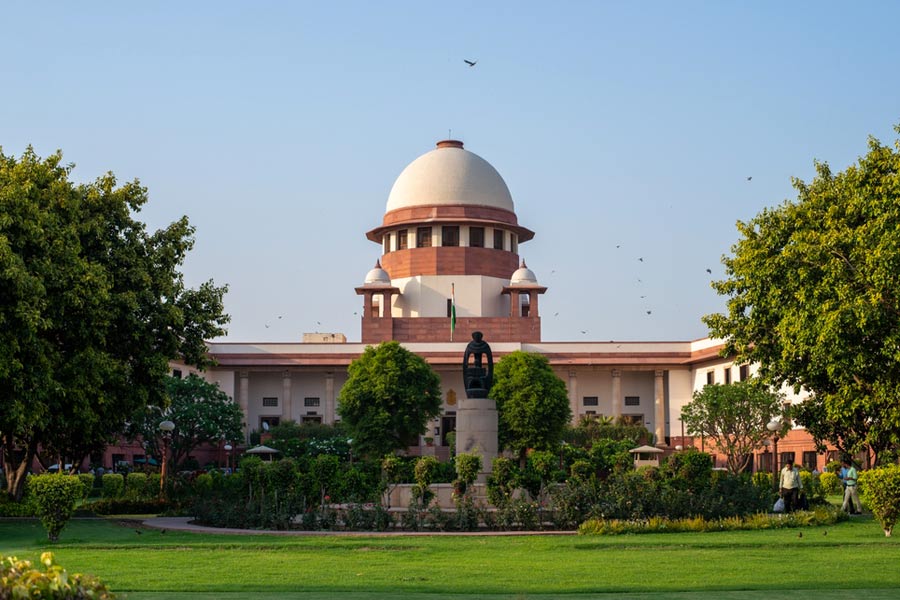The Supreme Court on Monday issued notices on the Bengal government's appeal challenging Calcutta High Court’s October 6 judgment acquitting one of the death row convicts and directing the release of three other convicts in the 2013 gang rape and murder of a college student in Kamduni village.
The notices were issued to all convicts who have been let off with a lenient view by the high court.
The three-judge apex court bench of Justice Bhushan Gavai, Justice P.S. Narasimha and Justice Prashant Mishra agreed to examine the state’s plea that the high court has not only “given a complete go-by to the nature of the offence but has proceeded to unreasonably attach undue importance to the possibility of reformation and rehabilitation of the accused persons”.
Standing counsel for the state in the apex court, Astha Sharma, submitted: “The Hon’ble High Court has not only discredited the prosecution story and chain of events that demonstrated prior concert and a conspiracy which would make each and every member of the group equally liable for all the acts committed, but has rather gone on an imprudent fact-finding mission to examine whether the brutality of the offence is severe enough to come within the definition of ‘rarest of rare’ case and thus qualify the accused persons for ‘Death Penalty’.
“Thus, the Hon’ble High Court has erroneously given a complete go-by to the nature of the offence but has proceeded to unreasonably attach undue importance to the possibility of reformation and rehabilitation of the accused persons."
The state also said that in this case, the high court “completely failed to appreciate there is existence of circumstantial evidence, which are closely associated with the fact in issue which, taken together form a chain of circumstances from which existence of principal fact can be legally inferred or presumed, i.e. intention to rape the victim. Following chain of events cumulatively demonstrate that there was motive and conspiracy to commit the rape on the victim girl.”
It was submitted that the victim’s body was recovered by relatives and neighbours with clothes torn and gruesome injuries, displaying evident signs of sexual assault, the same evening and the accused were known to constantly harass women in the area.
“The brutal, barbaric and diabolic nature of the crime is evincible from the acts committed by the accused persons, and which shook the collective consciences of the society. Vide the Impugned Order, the Hon’ble High Court has significantly watered down the punishment of the accused persons on the following premise, i.e., (i) Absence of prior concert to murder and rape the victim girl; (ii)Nature of injuries not ‘extensive’ or ‘brutal’ on the victim. (iii)Possibility of the accused persons reforming,” the state has said.
“It is submitted that approach adopted by the Hon’ble High Court to discredit the story of the Prosecution is ultra-hyper-technical and pedantic and not in consonance with the principle of circumstantial evidence which focuses on attending circumstances or chain of events from which existence of principal fact can be reasonably inferred or presumed."
On October 6, a division bench of the high court had acquitted a death row convict in the rape and murder case — Amin Ali — on the grounds of want of evidence.
Aminur Islam, Emanul Islam and Bholanath Naskar, who had been sentenced to life by the trial court, were also allowed to walk free after the high court remitted their sentences to seven years' imprisonment, which they have already served.
The division bench of Justices Joymalya Bagchi and Ajay Kumar Gupta also commuted the death sentences of two other convicts — Saiful Ali and Ansar Ali — to rigorous life imprisonment.
The gruesome incident occurred in the afternoon of June 7, 2013, when the student, who was returning from college, was gang-raped and murdered on an abandoned plot outside Kamduni.
